-
-
-
-
- Forum Labo 2025
- Advanced Therapies Week (ATW) 2025
- SLAS Europe 2025
- Medlab Middle East 2025
- Biologics World Nordics 2025
- Bioprocessing Summit Europe 2025
- BioProcess International Europe 2025
- ASIA LABEX: The Lab Show 2025
- SLAS International 2025
- ISEV 2025
- Future Labs Live 2025
- DataHow Symposium 2025
- Cell 2025
- LabDays 2025
- ASIA LABEX: The Lab Show 2025
-
-
-
-
- Forum Labo 2025
- Advanced Therapies Week (ATW) 2025
- SLAS Europe 2025
- Medlab Middle East 2025
- Biologics World Nordics 2025
- Bioprocessing Summit Europe 2025
- BioProcess International Europe 2025
- ASIA LABEX: The Lab Show 2025
- SLAS International 2025
- ISEV 2025
- Future Labs Live 2025
- DataHow Symposium 2025
- Cell 2025
- LabDays 2025
- ASIA LABEX: The Lab Show 2025
-
- Benchtop Centrifuges
- Floor-Standing Centrifuges
- Refrigerated Centrifuges
- Microcentrifuges
- Multipurpose Centrifuges
- High-Speed Centrifuges
- Ultracentrifuges
- Concentrator
- IVD Products
- High-Speed and Ultracentrifuge Consumables
- Centrifuge Tubes
- Centrifuge Plates
- Device Management Software
- Sample and Information Management
-
- All Pipettes, Dispensers & Automated Liquid Handlers
- Mechanical Pipettes
- Electronic Pipettes
- Multi-Channel Pipettes
- Positive Displacement Pipettes & Dispensers
- Automated Pipetting
- Bottle-Top Dispensers
- Pipette Controllers
- Pipette Tips
- Automation Consumables
- Dispenser & Pipette Accessories
- Automation Accessories
- Dispenser & Pipette Services

Read more
Read less

Read more
Read less
Your Sustainable Future Lab Perspective
»Our goal is to manufacture laboratory consumables in a measurably more sustainable way according to the "Reduce, Reuse, Recycle" concept without compromising on product quality and performance.«
Since oil-based plastic consumables have replaced glass consumables, they have become irreplaceable in laboratories around the world, providing quality standards needed in increasingly demanding research. This is the growing challenge in respect to sustainability. Thus, Eppendorf not only focuses on the development of new products but also on new, more environmentally friendly manufacturing materials. We are now able to offer a comprehensive product portfolio made from bio-based plastics. Eppendorf Tubes® BioBased, the brand new Eppendorf Safe-Lock Tubes ("Eppis® ") BioBased, epT.I.P.S.® BioBased pipette tips, all made from polypropylene, and Eppendorf twin.tec® Trace PCR plates BioBased, made from polycarbonate for the frames and polypropylene for the wells. All of the plastics we use are made from recycled raw materials and certified.
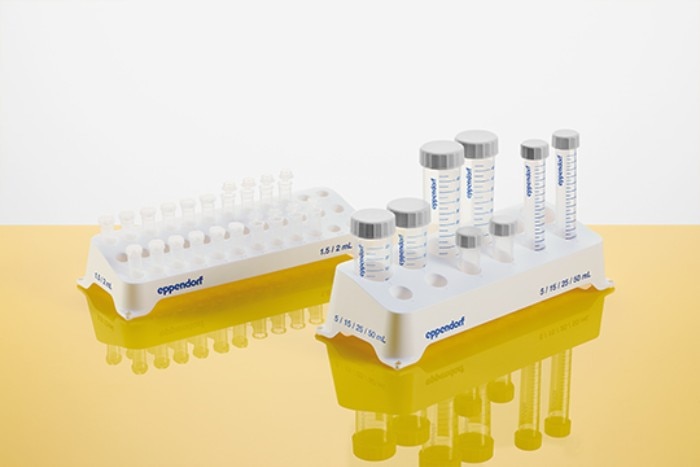
Special product highlights
- The Eppendorf Production Center in Oldenburg / Germany is ISCC PLUS (International Sustainability & Carbon Certification) certified.
- ACT labeled (Accountability, Consistency, Transparency) – Environmental Impact Factor Certification conducted by My Green Lab®
- Tubes*, tips and plates are made from renewable feedstock (recycled e.g. from food oil wastes and residues), applying ISCC mass balance approach. For details, see the product label.
- General Quality Certificates/Compliance with standards are available separately for Eppendorf Tubes® BioBased, epT.I.P.S.® BioBased, Eppendorf Safe-Lock Tubes BioBased and twin.tec® Trace PCR plates BioBased.
- Product-specific and lot-specific purity certificates, as well as an ISCC sustainability declaration for Eppendorf Tubes® BioBased, epT.I.P.S.® BioBased, Eppendorf Safe-Lock Tubes BioBased and twin.tec® Trace PCR plates BioBased, are available to download from the product page.
* The screw caps of the Eppendorf Tubes® BioBased are made from fossil-based materials and will also be converted to bio-based PE in the near future.
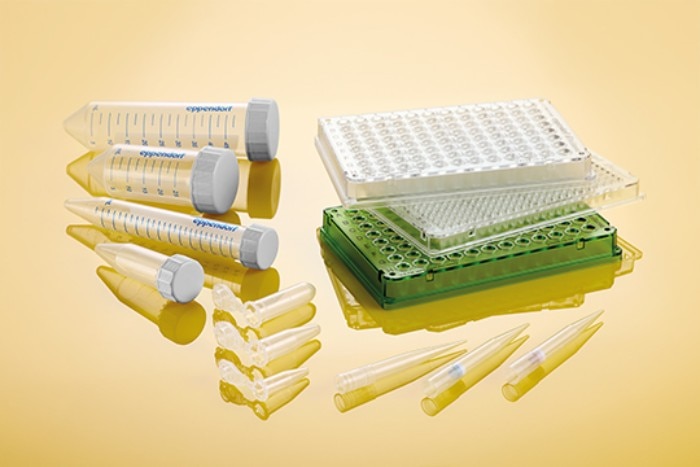
Shop our sustainable products now!
Article: „Advancing Sustainable Science with Plastic Consumables made with Biobased Materials“
Neste and Eppendorf SE – two manufacturers of different products in separate industrial worlds – have joined forces to advance the topic of sustainability in the laboratory.
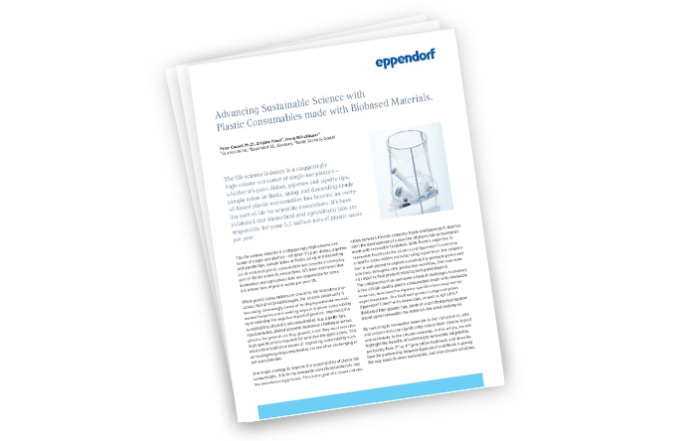
- In the biobased polymer production, fossil raw material is replaced with sustainable raw material produced from renewable feedstock, preferably of 2nd generation, e. g. biobased waste and residues.
- We differentiate between one-component and multiple component consumables made of separate polymers: Polypropylene, Polyethylene, Polycarbonate
- Eppendorf Tubes® BioBased*, Eppendorf Safe-Lock Tubes BioBased, epT.I.P.S.® BioBased are made from 100% bio-based polypropylene. Unlike these products, the Eppendorf twin.tec® Trace PCR Plates BioBased are made from 2 different bio-based polymers: The renewable material content is 100 % for the polypropylene wells and 77% for the polycarbonate frame. Being weighted by the material’s respective mass, this results in an average renewable biobased content of 86%.
- The renewable feedstocks used to produce the raw materials can be backtraced to the first collection points. The origin of the renewable raw materials from carefully selected suppliers committed to sustainability is assured.
All companies involved in the production chain of bio-based products are ISCC Plus certified. ISCC stands for "International Sustainability and Carbon Certification" and is a leading global certification system for manufacturers and processors of bio-based products.
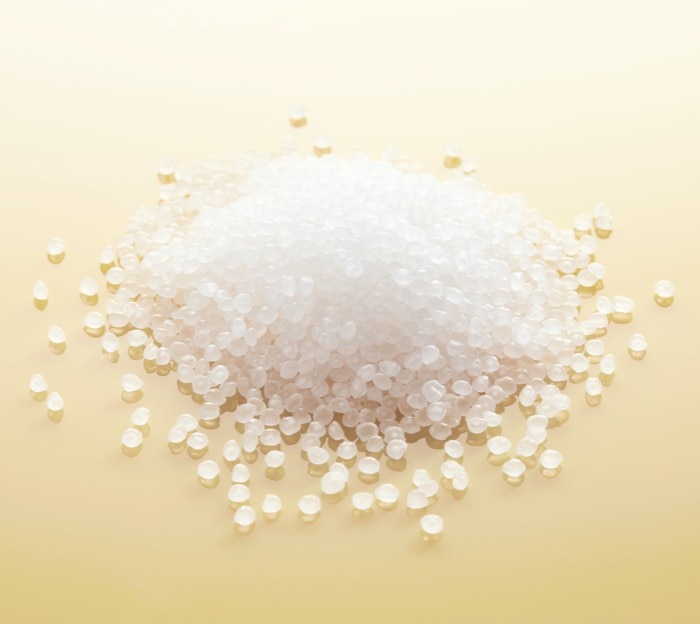
About Biobased Polymers Used for Eppendorf Tubes® BioBased, epT.I.P.S.® BioBased, Eppendorf Safe-Lock Tubes BioBased and Eppendorf twin.tec® Trace PCR plates BioBased.
The mass balance approach – Certification of complex product chains in the circular economy
»How to measure the number of renewable fractions in a final product, when polypropylene or other plastic made from building blocks from bio-naphtha has the same properties as polymers made of crude oil?«
Renewable feedstock replaces an equivalent amount of virgin feedstock from crude oil at the beginning of the value chain. First step: the exact quantity of renewable feedstock (here the bio-naphtha) which is needed for the production of a certain product has to be determined. In a second step, it has to be determined what quantity of fossil-fuel-based feedstock can be replaced by renewable feedstock. The amount of replaced feedstock is then allocated to the product so that the input amount matches the output in tons.
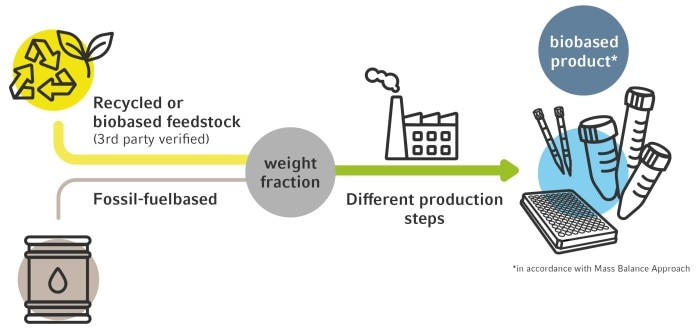
White Paper: „Consumables Made of Bioplastics Enter the Lab“"
Can we solve the plastic problem? Plastic has entered our daily life. But as versatile and necessary as it is, it also has a major ecologic impact since it is made from fossil fuels. Bioplastics produced from plants like sugar cane seem to be an alternative, but this approach also has its drawbacks. Intending to build a circular economy, waste streams are coming into focus as a source for the production of plastics.
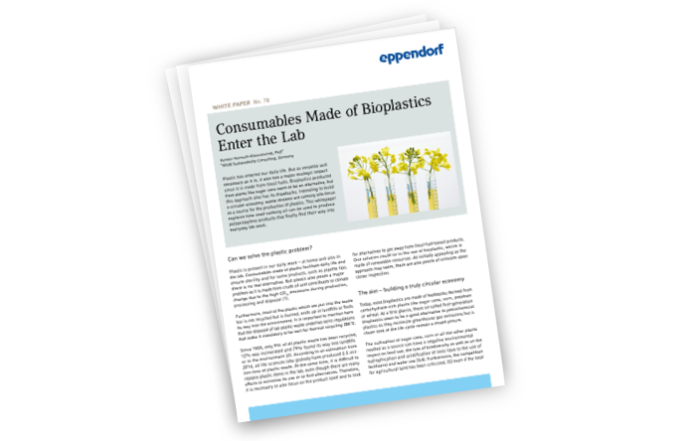
The path from vegetable cooking oil to Eppendorf Consumables BioBased
Read more
Read less
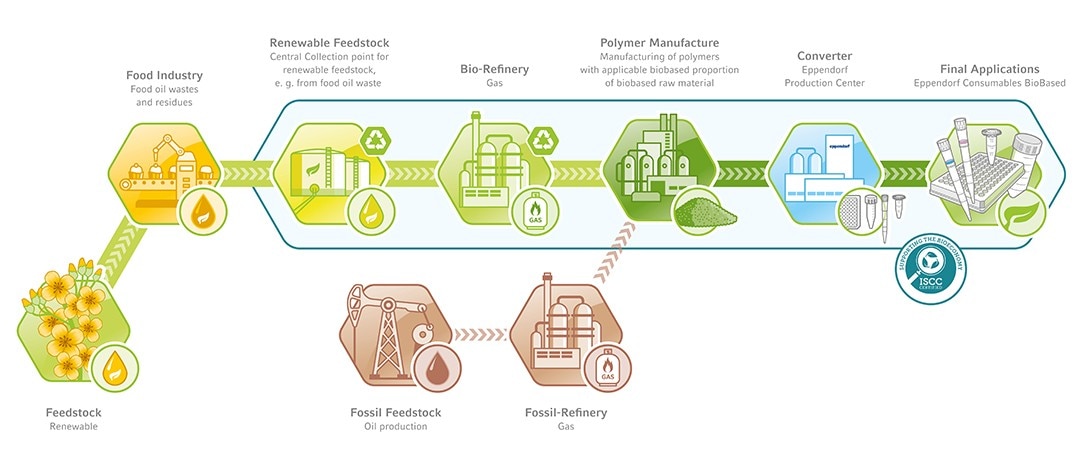
Downloads
Brochures & Flyers
Read more
Read less





